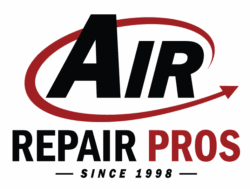Pros & Cons of Heat Pumps
Heat pumps can help consumers save on utilities, but they have limitations. First, they tend to be somewhat ineffective in any climate where the outdoor air temperature falls near or below freezing on a regular basis. This is because moving heat from a very cold area to a hotter one takes more energy than moving heat between two areas with a more moderate temperature difference. There’s also more heat available outside in a moderate climate than in a cold climate. It’s important to note that even in a cold climate, there’s still heat in the outside air to be pumped indoors, but the unit needs to work harder to extract the heat that is available. Supplemental energy may be required to make the heat pump produce enough warmth to comfortably heat your home when the temperature falls below freezing.
The heat produced by heat pumps isn’t as intense as the heat produced by a gas or oil-burning furnace. Some people used to traditional furnaces are uncomfortable with the milder heat produced by these systems. Other people prefer the warmth produced by heat pumps, because heat pumps distribute heat evenly throughout the house, meaning there are no cold spots. A heat pump also should turn on and off less often than a gas furnace, and most systems have eliminated the blowing of cold air through the vents that used to occur when the system temporarily switched into reverse to defrost the coils.
Depending upon your own personal choice and the needs of your home purchasing a heat pump may be a wise choice if you are trying to choose an air conditioning system to meet your needs. Below we have included an article that will provide pro’s and con’s of chosing a heat pump for your home.
(Article courtesy of: How Stuff Works)
Before you install a heat pump, you will need to consider what kind of supplemental or backup heating you may need to use when the heat pump can’t work efficiently. Many heat pumps use supplemental electrical heating, but you might also use some kind of oil burner or an adapted gas furnace. Whatever type of heating system is common in your area is likely the most efficient and cost-effective backup method.
Ground-source heat pumps are better dehumidifiers than normal air conditioners, because these systems typically have a larger, flat return coil that conditions and dehumidifies more air than the corresponding coil in an air conditioning system. Air-source heat pumps have about the same dehumidifying capabilities as air conditioning systems. You will need to consider any humidifying or dehumidifying needs your home has and select your system accordingly.
If you are trying to choose between a heat pump and a traditional air conditioning system, we hope that this page has provided some valuable insight. If you have any further questions or would like to schedule a consultation, please feel free to contact Air Repair Inc. at 972-625-1400.
